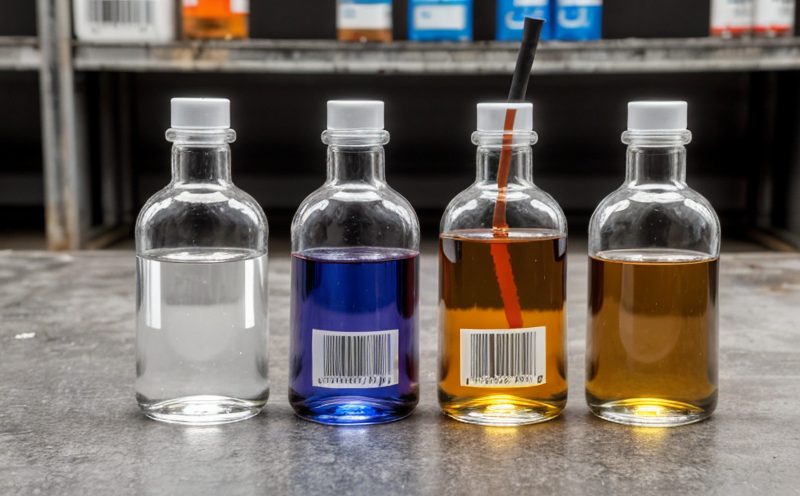EN ISO 3386 Stability Testing of Flexible Cellular Materials
The testing of flexible cellular materials under specified conditions to determine their stability and degradation is crucial in ensuring product quality, safety, and compliance with international standards. This service focuses on the application of EN ISO 3386:2017, which provides guidelines for the determination of changes in physical properties of flexible cellular materials after exposure to a thermal treatment.
The testing is particularly relevant for materials used in various sectors, including automotive interiors, textiles, and packaging. The goal is to evaluate how these materials behave under heat stress, simulating real-world conditions that may lead to deterioration over time. This service ensures that the materials meet the stringent requirements set by international standards.
The process involves subjecting samples of flexible cellular materials to a controlled thermal environment for a specified duration. Afterward, physical properties such as mass loss, tensile strength, elongation at break, and other relevant parameters are measured before and after the test. The difference in these values provides insight into the degradation behavior.
The service is designed to help clients understand the long-term performance of their products by providing data that can be used for quality assurance, regulatory compliance, and product development. It also aids in identifying potential issues early on, allowing for necessary adjustments before full-scale production.
Our team of experts uses state-of-the-art equipment and follows strict protocols to ensure accurate and reliable results. This includes maintaining a controlled environment during the thermal treatment process, precise sample preparation, and meticulous data collection throughout the testing period. Our reports provide detailed insights into the stability and degradation trends, helping clients make informed decisions.
By leveraging this service, our clients can gain valuable information about their materials' performance under heat stress, which is essential for maintaining product integrity and customer satisfaction in competitive markets. This knowledge can also contribute to reducing waste by optimizing material selection and processing methods.
| Material Type | Sample Dimensions | Number of Samples |
|---|---|---|
| Foam | 100 mm x 100 mm x 25 mm | 3 per condition |
| Polyurethane | 150 mm x 75 mm x 25 mm | 4 per condition |
| Elastomeric Foam | 150 mm x 75 mm x 25 mm | 3 per condition |
| Parameter | Test Condition (°C) | Duration (hours) | Acceptance Criterion |
|---|---|---|---|
| Mass Loss | 150°C | 24 hours | ≤5% change in mass |
| Tensile Strength | 150°C | 24 hours | ≥80% retention of original strength |
| Elongation at Break | 150°C | 24 hours | ≤30% change in elongation |
Benefits
The primary benefit of this service lies in its ability to provide comprehensive insights into the stability and degradation behavior of flexible cellular materials. This information is invaluable for ensuring product quality, safety, and compliance with international standards.
- Enhanced Product Quality: Understanding how materials degrade under heat stress allows manufacturers to improve their products' longevity and performance.
- Regulatory Compliance: By adhering to strict testing protocols as outlined in EN ISO 3386, clients ensure that their products meet the necessary regulatory requirements.
- Data-Driven Decision Making: The detailed reports generated from this service offer valuable data points for making informed decisions about material selection and processing methods.
- Cost Efficiency: Early identification of potential issues can prevent costly rework or product recalls. It also helps in optimizing production processes, thereby reducing costs.
In summary, this service not only ensures high-quality products but also supports compliance with international standards and facilitates informed decision-making processes.
Environmental and Sustainability Contributions
- Waste Reduction: By identifying materials that are prone to degradation early in the development process, this service helps minimize waste by optimizing material selection and processing methods.
- Resource Efficiency: Understanding how materials behave under heat stress allows for more efficient use of raw materials, leading to a reduction in resource consumption.
- Eco-Friendly Products: Ensuring that products meet stringent quality standards helps promote the development and production of eco-friendly alternatives that are less harmful to the environment.
The service aligns with broader sustainability goals by promoting the use of materials that maintain their integrity under challenging conditions, thereby extending product life cycles. This ultimately contributes to a more sustainable manufacturing industry.
Use Cases and Application Examples
| Industry Sector | Product Type | Use Case |
|---|---|---|
| Automotive | Seat Cushions | Evaluating the durability of seat cushions under heat stress to ensure passenger comfort and safety. |
| Furniture | Dining Chairs | Assessing the longevity of dining chairs in high-traffic areas, ensuring they retain their shape and appearance over time. |
| Textiles | Insulation Blankets | Determining the thermal stability of insulation blankets used in industrial settings to ensure consistent performance. |
The service is particularly beneficial for industries where materials are exposed to high temperatures, such as automotive interiors and textiles. By simulating real-world conditions during testing, this service helps manufacturers make informed decisions that enhance product quality and safety.





